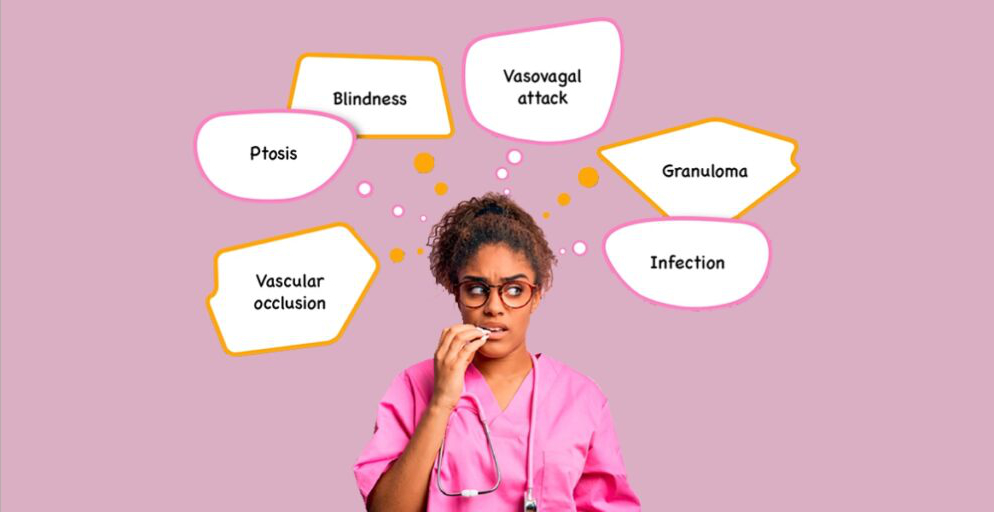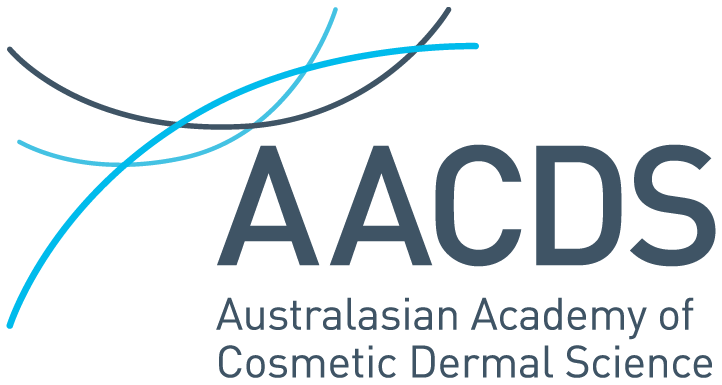The Aesthetic Medical Emergency Team: Helping to Ease Practitioner Anxiety about Injectable Complications

The Aesthetic medical Emergency Team
Helping to Ease Practitioner Anxiety about injectable Complications
The Australasian Academy of Cosmetic Dermal Science is pleased to introduce the Aesthetic Medical Emergency Team (AMET) to our students, new graduates and alumni. Developed specifically to assist cosmetic injectors (both doctors and nurses), AMET provides a much-needed service to the industry, especially our new graduates of the Graduate Diploma of Cosmetic Nursing and Injectables. The following information is kindly written by Elena Currie RN, co-founder of AMET.
Most cosmetic nurses are all too familiar with that unrelenting and sometimes overwhelming feeling of anxiety when we think of adverse events. We all became health care practitioners for a reason – to help and care for our patient’s health and wellbeing. Cosmetic nursing is unique in the sense that our environment can often feel isolating with few to no people around us. It’s fine for 95% of the time when everything is working well, but what happens when something goes wrong?
Hospitals and medical clinics inherently have multiple health care practitioners working side by side which provides both a sense of support and belonging. When a patient faints, we have someone to call. When a patient is having an allergic reaction, we have all hands-on deck. Even though these events are rare, having colleagues around us automatically decreases our internal stress levels. When something happens, we know our adrenaline will kick-in but we also know we are not dealing with it alone.
Cosmetic nursing settings are different. Whilst there are some that operate with multiple HCPs on site, there are also many sole practitioners and/or clinics whereby you are the only qualified health care practitioner on site. This isolation in itself makes most practitioners uneasy. Then couple this with even a fleeting thought along the lines of “what happens if my patient has anaphylaxis / vascular occlusion / blindness?” and you have a boiling pot of internalised anxiety.
Detailed, hands-on adverse event training is difficult to include in cosmetic injectable training. Then whatever awareness or presentations that are given, often center around scare tactics by showcasing the most complex or severe cases (e.g. filler induced blindness or necrosis and scarring). Time and time again we are shown these horrific images of “what could happen” that feed into this internalised anxiety. But like anything, the more we are exposed to these images the less we are moved by them. Ironically these scare tactics act like exposure therapy and have essentially made practitioners less receptive to adverse event education and not more. We are now used to walking out of the lectures thinking “Why on earth do I treat the tear trough?” or “I’m never treating another nasolabial again” – and then a week later we are back in clinic doing the exact same procedures or techniques.
We need to shift the way we perceive adverse events. Complications are inherent in any area of medicine of which aesthetics is no different. We need to motivate practitioners to embrace complications as a natural part of our aesthetic journey and that whilst we can do our best to prevent or minimise them, we will never be able to stop them entirely. Like any area of medicine or healthcare, it is simply a numbers game.
We also need to understand that we must have a healthy amount of anxiety with aesthetic medicine. Unhealthy anxiety is feeling so overwhelmed with anxiety about complications that this impacts your life. Some practitioners lose hours of sleep or end up impulsively quitting at the first sign of a side effect! This crippling level of anxiety simply means you need to know more about how to prevent, recognise and manage complications. The only way to tackle irrational anxiety is with knowledge. Knowledge leads to empowerment which drastically decreases your anxiety because you feel prepared.
Conversely, if you are new to injecting and do not experience any anxiety about complications, it’s likely you are unaware of the dangers. The saying “we don’t know what we don’t know” rings true here. Because many courses do not include detailed training on complications then many injectors simply do not know the risks involved. If we do not know we are being dangerous, then naturally we do not feel anxiety!
No matter the skill level, we all need to have access to ongoing independent adverse event training. Research emerges every year which changes the recommendations for adverse event management. The reality is that most practitioners do not have the time or money to invest in researching the latest updates in aesthetic medicine, let alone time needed to critique and cross reference these papers. We need an industry and regional consensus that helps create framework for us to self-regulate and optimise patient outcomes following adverse events.
As health care practitioners we MUST prioritise this knowledge. We all adhere to basic/advanced life support courses each year and the same should apply in aesthetic medicine with complications. The industry is constantly learning and evolving with safety knowledge so we need to ensure that our knowledge and understanding is current.
Our vision is for an industry that is passionate about safety first and aesthetic outcomes second. An industry where we all feel supported, connected and confident in being able to recognise and manage complications in a timely manner. Where we focus on growing confidence with adverse events and minimise scare tactics. Where we share our cases more freely to promote awareness and also include positive outcomes of adverse events! We need to eradicate stigma of adverse events being practitioner fault and become more united by supporting each other in times of need.
This is the lifeblood of AMET. We are dedicated to empowering, connecting and supporting all aesthetic practitioners so that we can build a safer industry together. To unite our industry by coming together for the same collective cause – improving patient safety.
AACDS Graduates and AMET
AACDS has collaborated with AMET to provide graduates of the 52852WA Graduate Diploma of Cosmetic Nursing and Injectables and the 52709WA Graduate Diploma of Cosmetic Nursing with a discount to access this important service. Upon graduation, you will receive a discount code to join AMET anytime in the first year of graduating.

